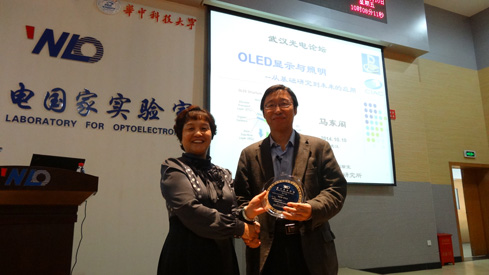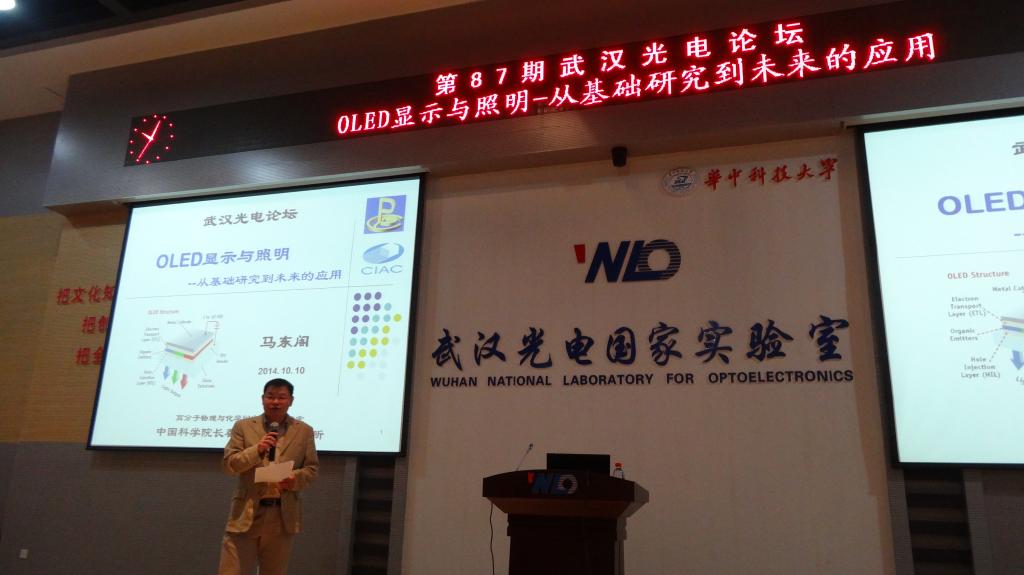WUHAN, China (October 10, 2014) - Wuhan Optoelectronics Forum No. 87 was successfully held in Auditorium A101 at Wuhan National Laboratory for Optoelectronics (WNLO) in the morning of October 10.
Organic light-emitting diodes (OLEDs) have become important technologies of display and lighting, which not only achieve applications in industry, but also obtain deep studies in science. This presentation will introduce the physics basis and design principle of high efficiency OLEDs in device structures based on work mechanism and related materials, and finally view the future direction of organic semiconductors.
Ma Dongge received the Ph. D degree in Electrical Engineering Department from Jilin University in 1995. After additional years as a visiting professor and research fellow in Universidade Federal do Paranál, Brazil, and Durham University and St. Andrews University, UK, he joined Changchun Institute of Applied Chemistry, CAS, as a professor in 2001. He ever obtained support by Hundreds of Talents Program, National Science Fund for Distinguished Young Scholars, and became Candidate of Hundred Thousand Talents Program. He also achieved National Natural Science Prize and Science and Technology Prize of Jilin Province. Now he is an associate editor of Organic Electronics and corresponding editor of Light: Science & Applications, and a member of editorial board of Frontiers of Optoelectronics, J. Solid State Lighting, International J of Photoenergy and Chinese J. Liquid Crystals and Displays. He is always engaged in semiconductor optoelectronic devices and physics and obtained many support of projects in the field of organic optoelectronics. His research is focusing on the studies of organic optoelectronic devices, including organic light-emitting diodes, organic photodetectors, and organic lasers, and the electronic transport processes in organic semiconductors. Up to now, he has published over 200 papers on organic electronics, and the cited numbers in published papers are over 2300 times.

